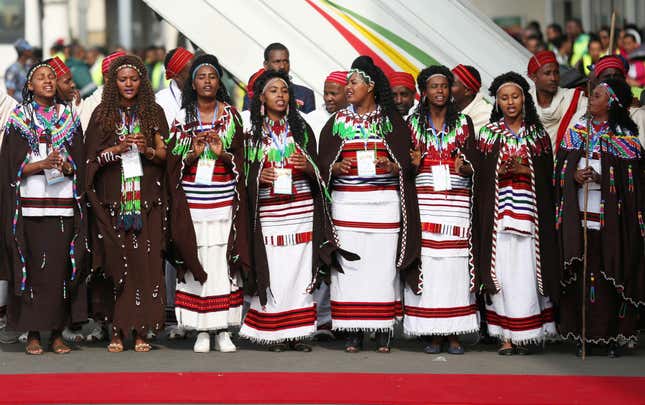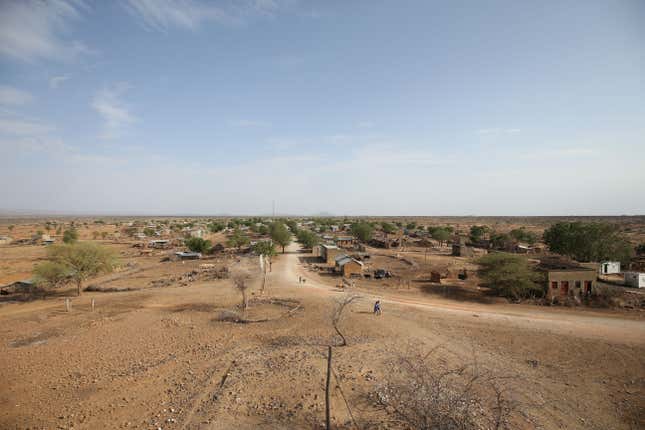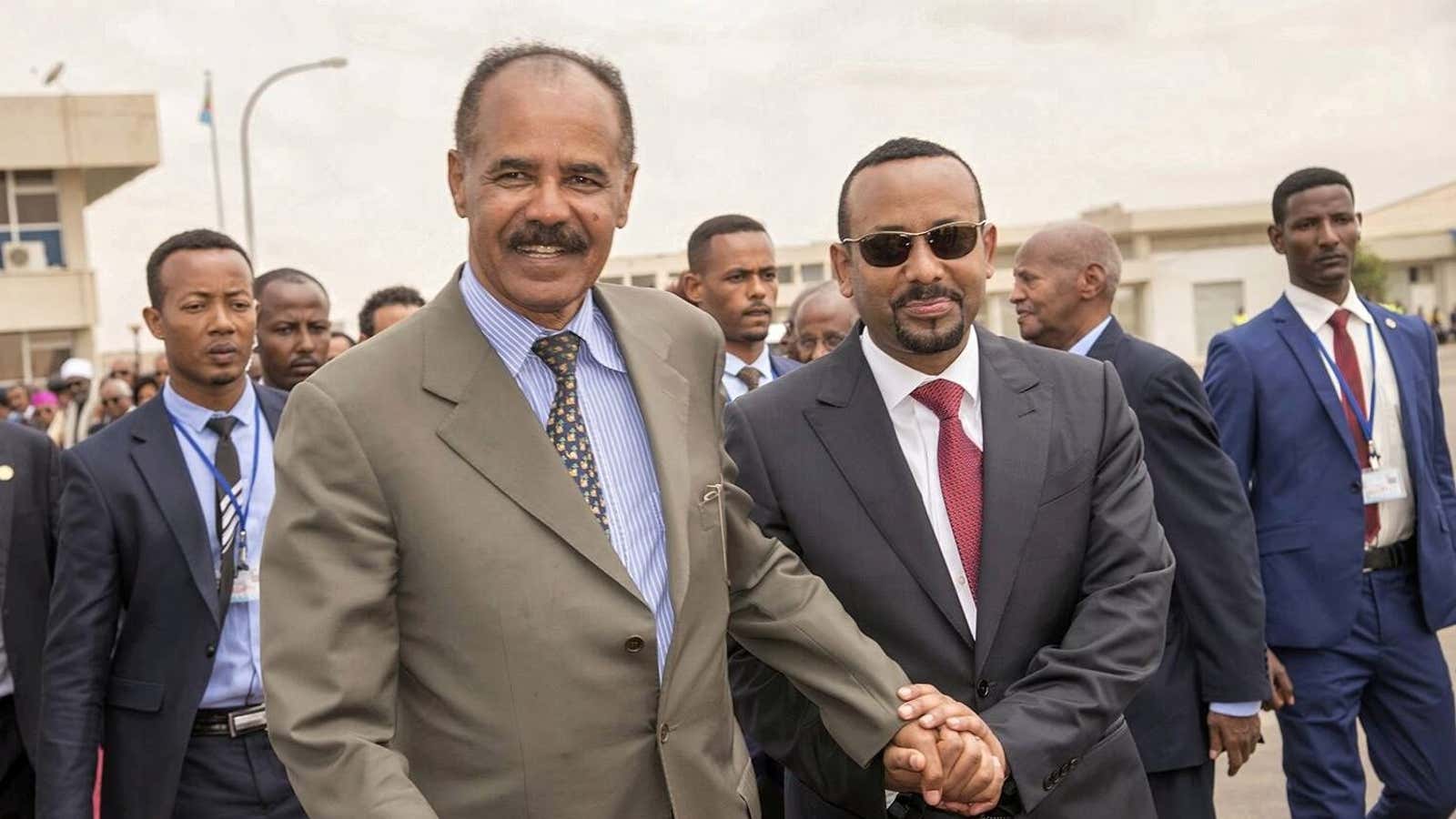The recent diplomatic bonhomie between Ethiopia and Eritrea is both equally stunning and unbelievable. This weekend, president Isaias Afwerki of Eritrea flew to Addis Ababa to cement the thawing of relations between the two nations after decades of hostility. Along with prime minister Abiy Ahmed, Isaias was greeted by flag-waving crowds, received a horse and a camel as gifts, and attended a concert where they preached love and peace. On Monday (July 16), Eritrea’s embassy was officially reopened in the Ethiopian capital.
“No one can steal the love we have regained now. Now is the time to make up for the lost times,” 72-year-old Isaias said. Abiy, who at 41 is Africa’s youngest leader, reiterated the sentiments, declaring, “The reconciliation we are forging now is an example to people across Africa and beyond.”
But while the two Horn of Africa nations have taken a turnaround for the better, there’s hard work that lies ahead. Once the honeymoon period is over, there will be the enormous challenge of dealing with various political and economic issues and satisfying a diverse constituency with diverging demands.

The key issue will be demarcating the border at Badme town, which initially kicked off the war in 1998 and sustained the intractable political and military standoff since 2000. In early June, Abiy agreed to cede the town to Eritrea in accordance with a United Nations ruling. But that decision hasn’t been well received with all residents of the town in the northern Tigray region, where many soldiers died. Veterans there are already calling Abiy’s gesture an act of betrayal and have threatened violence if forced to leave.
For the process to succeed, “there will need to be some level of local consultation to take their needs into account,” says Omar Mahmood, a researcher with the Institute for Security Studies in Addis Ababa.

The tensions brewing in Badme also presents a balancing act for Abiy, an Oromo, who must cater to a multi-faceted ethnic federation in Africa’s second-most-populous nation. Up until his election, Tigrayans dominated the ruling political coalition. Yet Abiy’s massive and fast-moving reform has jolted their hold, with the Tigrayan People’s Liberation Front already giving him a rocky political ride. As such, experts say that building solid alliances, especially in the security and governance sectors, will be crucial to the success of Abiy’s agenda.
Another main issue to tackle will be how to strengthen the economic relations between the two nations. It is no secret that Abiy has made securing port access throughout the region a key aim of his foreign policy thus far: he announced joint seaport investments with Somalia and was recently at the opening of the China-backed Djibouti free trade zone, which constitutes a gateway to international markets for landlocked Ethiopia. But even though Eritrea’s ports aren’t as developed as the ones in Djibouti or Somaliland, Asmara might make demands that Addis will have to agree on so as to nudge this truce forward.
But the biggest question stemming from this rapprochement is how much the new developments will be a catalyst for change in Eritrea. Since independence in 1993, Isaias has overseen a one-party state that has oppressed its people, forced them into conscription and cracked down on critics. By accepting Abiy’s olive branch, Mahmood says Eritrea lost a major justification for some of its harsh and autocratic policies.
“Developments like this would also certainly embolden the calls for change internally,” he said. “But thus far there has been little coming out from Eritrea on this side.”




